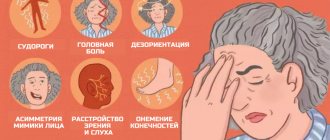The desire of a parent to make a child an excellent student is understandable and natural. But in the desire to see only A's in the diary, it is necessary to maintain a balance. Otherwise, excellent student syndrome may develop, which brings a lot of trouble.
Excellent student syndrome is:
- the desire to always and everywhere be the first, to receive only the highest mark;
- incorrect prioritization: what is important is not the knowledge and skill itself, but their positive assessment;
- strong emotional reactions to results that do not meet expectations.
Motivation to study is replaced by motivation to achieve success at any cost. In adulthood, this is fraught with nervous breakdowns and depression. So how can you maintain balance and not go to extremes? How to help a child achieve good results, but avoid the formation of excellent student syndrome? The following steps and recommendations will help you.
“If I don’t get an A, I’m a loser.”
“We spend our whole lives trying to achieve excellent results from ourselves and our children, and then it turns out that the “excellent student syndrome” is bad. Why?
“Before I changed my profession and encountered psychotherapy, I myself suffered for a long time and unknowingly from the “excellent student syndrome.”
I remember when I went to first grade. All the children go and rejoice: flowers, “adult” life ahead. And I was immediately afraid of getting a bad grade, although no one scared me about it. There are photographs from the very first day of school: me with a bouquet in one hand, with the teacher’s hand in the other and with an unhappy face. Then, as an adult, I experienced terrible jitters during all exams.
– But the desire to study well is really bad?
– It is believed that excellent students are drawn to knowledge. But if you carefully observe people with “excellent student syndrome”, it turns out that they do not need knowledge, but a grade, and the highest one at that. For them, the highest value is acceptance, approval and love. Such a person is convinced that if he is not an excellent student, they will not love him.
Even before school, a child with “excellent student syndrome” wants to be first always and everywhere.
There can be two scenarios for the development of this syndrome. If a child does not have the potential to be an excellent student, he gives up and the thought turns on: “I don’t want to study at all!” - such a reverse side of his way of thinking.
The second scenario is that the child tries to complete the task at any cost because he is afraid: otherwise his parents will not love and approve of him.
However, do not confuse the “excellent student syndrome” with perfectionism.
A perfectionist strives to do everything perfectly, but will not do it at any cost, and an “excellent student” will “go over corpses” in order to achieve an “A.”
A person with “excellent student syndrome” will achieve an “A” by any means - he can cheat, spy, or cheat. Or take a page out of the diary, start a separate diary for parents (now this won’t work with electronic diaries), but do not show other grades other than excellent grades at home.
This is not acceptable for a perfectionist. Perfectionists focus on the work itself, while people with “excellent student syndrome” focus on the result and the perception of this result by others.
Children and adults susceptible to the “excellent student syndrome” often perceive a task as a kind of competition in which they must win, while having a negative attitude towards “competitors.” A perfectionist thinks more about work, and not about the fact that he has rivals.
The most dangerous belief that is formed during the “excellent student syndrome” is that a “B” is not a grade at all.
It would seem that there is something wrong with a B, but inside the child a binary system is already working: all or nothing, if I don’t get an A, I’m a nonentity. And, even if the parents scold only slightly, the child can eat himself by the time he gets home from school.
"Excellent student syndrome" in adults
Photo from steveseay.com
– It’s clear whose love the child is trying to earn by getting straight A’s. And whose love is a young mother trying to earn when she begins to make her child ideal - torturing him with the right construction sets, early development and English from the age of eight months?
– She is trying to earn the love of either her parents or that “great parent”, the image of which is in the head of each of us. Sometimes, even being an atheist, a person seeks approval and love from such an image.
Very often, growing up to prove to the whole world that they are not insignificant, such mothers will prove to everyone that they are the best mothers in the world.
To do this, their child must be the best: best dressed, learned the most English words at 8 months.
And, unfortunately, there are also a lot of churchgoers with “excellent student syndrome.” They live by the principle: “Every Sunday I must be at the service, if I don’t come to it, the Lord will punish me.
I must bring a list of my sins to the service and account for them.” Of course, I’m exaggerating a little, but their thoughts are developing precisely in this direction.
- “If I do something wrong, I will be punished.” How does a religious idea turn into a construct in which there is no place for love?
– The idea could have arisen from a real (and not in words) lack of love in the family, from the fear of loving oneself, because there is always the risk of “getting a bad mark”, of being “not the best”; due to the inability to endure suffering. The thought is formed: “Love is painful, it is impossible to love” and the behavior of people who grew up in a lack of love: they themselves do not know how to love and are afraid, but they really want to get what they did not receive.
At the same time, they are sure that love must be earned. But the fact that God loves everyone, whether they are excellent students or poor students, as, for example, in the parable of the prodigal son, is not clear to them.
But there are many saints who were not good at science since childhood. These are Sergius of Radonezh and John of Kronstadt.
The Lord gave them the experience of being unable to learn, and when they lived and accepted this experience, they were given both knowledge and abilities.
Hereditary scenario
Photo from the website b17.ru
– The behavior of an excellent student is often a hereditary scenario, which in Russia dates back to Soviet times.
There were times when our society lived from five-year plan to five-year plan, and they tried to fit even that into four, or better yet, three years. This was the case during industrialization and after the war, when it was necessary to restore the country.
Results and pace were demanded from people, while no one took into account needs, did not think about safety, and certainly did not look at the abilities of each individual person and at what price everything was given to him.
As a result, a whole generation developed the belief: “We should have become excellent students, but we couldn’t, so our children are obliged to make this dream come true.”
This is our Russian ancestral dream: sometimes you work with a client, and the image of some great-grandmother pops up, who was convinced that “you need to study well, otherwise you will become a janitor.” And this belief is passed on to grandchildren and great-grandchildren until someone realizes and changes this system.
Now people come to me who spin like squirrels in a wheel and cannot at all understand what talents and abilities they have. They live in isolation from themselves, and their only goal is to be the best. At the same time, the pressure intensifies in each new generation, and this idea turns into neurosis.
Of course, there were no five-year plans in the West, but there is a syndrome. And there were terrible examples of worship of leaders - their “great fathers”. The “excellent student syndrome” generally develops favorably in the age of wars and industrialization, when parents experienced some kind of troubles, generational trauma and could not give their children enough emotional presence.
Or it happens differently: the parents studied well, but for some reason the child cannot cope. And they start telling him: “Look at us!” But at the same time they hide some of the information and don’t tell them that they didn’t always have straight A’s.
The scenario with the “excellent student syndrome” can be absorbed literally with mother’s milk: sometimes it happens that the child has not yet started school, they have not yet begun to really teach him anything in kindergarten, but the syndrome already exists.
Moving away from the classical assessment system
It is important to remove evaluative words (“bad”, “good”, “excellent”). Try to make any praise objective: “you’re doing great because you were able to improve your knowledge and improve your B grades,” “I see that you tried hard this half-year, you’ve already been able to close many gaps, keep up the good work,” and so on.
The ideal option is to avoid classical assessment not only at home, but also at school. At the moment, only private schools can offer training in accordance with these principles. At the Private School Yunium
, for example, there are no grades, and knowledge control is carried out personally. Thus, the child learns faster and easier, his level of motivation and self-confidence increases, and the pace of mastering information and solving emerging difficulties accelerates.
Excellent student syndrome is a real problem that lurks among those who fail to achieve balance. Therefore, we recommend that parents pay close attention to motivating their children and not attach too much importance to grades. Read about other secrets of harmonious upbringing in this article
, where we will talk about how to understand your child at any age, how to help him become a successful and happy person. And also about how not to lose yourself in this complex and multifaceted process.
Author of the article: Ksenia Mikheeva - psychologist, teacher at Unium in biology.
How to recognize “excellent student syndrome”
Photo from yourcareeverywhere.com
– How to distinguish a person with “excellent student syndrome” from a real excellent student?
– A person with the syndrome does not accept criticism. He often experiences uncertainty: his condition is like a swing, where the thought “I am the best” is quickly replaced by the thought “I am a loser and a nonentity.” If you need to start a new business, a person with “excellent student syndrome” falls into a stupor - because he does not know in advance whether he will do an excellent job.
Another important sign of the “excellent student syndrome” is jealousy of the successes of others: “How come this person did better, but I can’t keep up with him?” The child begins to rejoice at other people’s failures and envy.
We envy when we see someone did something that we could have done, but didn’t. Either we would like to do it better, but we didn’t succeed, or we wanted to do it perfectly, and someone did it. Envy is an inevitable consequence of the “excellent student syndrome.”
Another sign is when a child begins to become very dependent on praise. For example, he begins to have tantrums when someone does not appreciate how he performs household duties. Although his responsibilities are small - take out the trash or feed the cat.
There is also a fear of failure - for example, a child honestly prepares for an exam, but gets a bad mark. Because he started writing, made a mark and understands: he will no longer get an A for this work. And he doesn’t need another assessment.
To notice the “excellent student syndrome” in yourself, it is useful to develop awareness.
It is very useful to periodically ask yourself: “When was the last time I was happy?”
Sooner or later you notice that your life is an endless race for results, but there is still no joy from the results, the need is not satisfied.
How to overcome excellent student syndrome and change everything
Almost every schoolchild has heard the phrase “You need to study well.” For some, “studying well” means being an excellent student, and for others, it means participating in specialized Olympiads and going to training camps and rallies. Our blogger Dasha Dedenko tells how she overcame the complex of an excellent student and how specialized camps helped her learn more about the world.
Useful Mela newsletter twice a week: Tuesday and Friday
SUBSCRIBE
In any class of every school you can find children in the first desks who always answer the teacher’s questions, try to do everything perfectly and never miss school classes! If you didn’t find such a person in the class, then most likely this person is you.
Excellent students are responsible, organized and efficient people, have high academic achievements, and prefer to do everything perfectly. Many in the class are jealous of their excellent grades, and, of course, they want to be in their place.
Throughout elementary and middle school, I myself strived to become an excellent student. It was a cherished dream to receive a certificate of merit for excellent studies at the final assessment at the end of the year. From the first grade I was told that I could and should be an “ideal student,” but throughout all nine years of study I fell just a little short of my cherished goal. In elementary school, an annoying misunderstanding was a “B” in mathematics, and in middle school, the “perfect picture” was spoiled by “B” grades in physics and chemistry.
I remember my feelings and understand that I felt constant tension and dissatisfaction with myself. It’s as if I’m participating in some kind of endless Olympic games and constantly taking a disappointing fourth place.
At that moment, I was afraid to miss school: what if I missed something and wouldn’t be able to catch up with the program later? What will the parents think?! They really want to see the gold medal “for academic success” on my chest. Did I really want this myself? In the ninth grade, I realized that a red certificate would remain an unattainable dream for me, and in the 11th grade I would not even see a gold medal.
To be honest, I gave up. Mostly due to the new conditions for receiving a gold medal “for academic excellence”
Now only those who take specialized mathematics at the Unified State Exam can get it! Eh, okay, if I could just pass, but I need 75 points! Really assessing my strengths, I decided not to take specialized mathematics, which means that the dream of a medal will remain unrealized.
Previously, I dreamed of seeing only the highest scores on the report card, because of this I was terrified of getting sick and missing school. We can say that the first step towards getting rid of the “excellent student syndrome” was taken at the end of the seventh grade. I took part in a competitive selection to participate in a shift at the All-Russian Children's, the shift began at the end of May, and I had to leave even earlier. The departure dates coincided with the dates of the final annual tests. Having worried, I went to submit all the work ahead of schedule. Suddenly it turned out that there was nothing wrong with this.
Excellent students on the honor board
Photo from the site baikal-info.ru
– Does modern school cultivate the “excellent student syndrome”?
- Very often, unfortunately. Sometimes parents are even afraid to go to parent-teacher meetings.
Parents come and sit all sweaty, worried that they will now name their child and scold him in public. And then they dump their shame and anger on the child.
Fortunately, some teachers are now abandoning the practice of discussing children in front of everyone. All children have different abilities and opportunities, but at the same time equal rights.
And, by and large, publicly dissecting a child at a meeting is a kind of teacher manipulation, an attempt to put pressure on parents so that they put pressure on their children, and the children get motivation to study.
A teacher may also have excellent student syndrome, and then an inner voice shouts to her: “You must become a good teacher, the best teacher of the year, you must have the best students!” As a result, there are laureate teachers who have a lot of awards. But not all students can withstand their pressure. Unfortunately, in this case, the teacher realizes his “excellent student syndrome” through his students.
– How does the excellent student syndrome affect the current corporate culture, where there is “best salesman of the month”, “best office manager”, “best division of the quarter”?
– It fits very tightly, I can confirm this as a former HR person. When working with personnel, there is such a concept - “non-material motivation”. It is impossible to endlessly increase employees' salaries - the needs are still growing and the person, in the end, will not be satisfied. Then the employer begins to come up with some “tricks”. One of them is taken from our Soviet times, when portraits of leaders in production hung on the honor board.
The same honor boards appear, and the material incentive can be very small - for example, an extra day for vacation. This is beneficial for the corporation.
How to motivate and not devalue
Photo from the site protvoysport.ru
– What words or actions can provoke “excellent student syndrome” in a child?
- For example, when they tell a child every time: “When you bring an A, you’re doing great, there will be a cake for you!” At the same time, it is broadcast that, for example, a four is not a result at all. And so any efforts of the child are devalued.
Punishment by deprivation of sweets or a tablet if there is no “A” is also a provocation.
It happens that after receiving a bad grade, a child is ignored, so that when he comes home, he encounters his mother - the Snow Queen.
For greater reliability, they scare the child: “If you study poorly, you will become a janitor!” At the same time, academic success is clearly linked to further success in life and career.
It happens that parents give their child pocket money for an A, and here the “A at any cost” principle comes into play most quickly.
– How to properly motivate a child to study?
– There is no need to focus on super results, there is no need to say: “You must be the first, the best, then we will be proud of you.” Even if a child doesn’t get first place in competitions, we should be happy that he participated in them honestly and to the best of his ability. You need to reward for any good grades, and for B's too.
I have a classmate who now teaches at Skolkovo and teaches businessmen how to make millions. He is a successful business coach and regularly travels to the Silicate Valley. So at school he was a C student. That is, there is no direct connection between a child’s grades in school and his future success in life.
It is important to talk to your child about love for no reason, so that he understands that he is loved because he is, and not because he brought an excellent mark.
My daughter is a first grader, they don’t give them grades, but they give them stickers. And so she comes from school and says: “One girl has 20 stickers, and I have 15, and I also want 20!” And I can already feel which way the wind is blowing, and I tell her: “Think about the guys who have 5 stickers or none. Has this made them worse?
That is, I say all the time: “I’m very pleased that you have so many stickers” (I don’t devalue success). But at the same time I try to make her understand:
the mark is not equal to the person. There are many things in a person. One studies with straight A's, and the other rides a horse or sings like Orpheus.
Otherwise, a chain reaction results: at work you owe your boss, you need to bring more money to your family; You need to be an ideal housewife at home, children must study ideally...
As soon as one person with “excellent student syndrome” appears in the family, the whole family is affected by the spirit of internal competition.
We brand ourselves as a loser, and he shouts at us: “Accept me, relax, stop fighting me!” It’s like with sins - we struggle and struggle, and changes begin only when we accept ourselves, including those who are rejected and weak.
When a child receives a bad grade, do not scold him or say the phrase “next time you will get better.” Tell us about how you got a bad mark, remember how you felt then. Tell him that you understand perfectly well how upset he is right now. That your grades did not prevent you from getting ahead in life, getting your current job, starting a family, giving birth to him.
There is a wonderful English proverb - “don’t educate children, educate yourself.” Don't torment your child with directives, just set a personal example.
But if a parent talks about the benefits of a healthy lifestyle with a cigarette in hand, the child very quickly understands that there are double standards.
In addition, try to diversify your child's activities, do not limit him only to school. Try to notice your child’s abilities from childhood. If he draws, send him to a drawing club, but don’t develop even these hobbies in a directive manner. If a child doesn’t want to go to class today, there is no need to force him.
If a child goes to a class and changes his mind a month later, there is no need to scold him - it is normal for children under fifteen to change their decisions and interests.
This is how a child tests the boundaries of his capabilities and abilities, this is normal.
And in general, remember that evaluation criteria may change over time - “what is good for a Russian is death for a German,” or what was valued yesterday turns out to be completely useless today.
The right to make a mistake. Why is excellent student syndrome dangerous for adults and children?
According to the head of the capital's Department of Education and Science, Alexander Molotkov, Moscow schoolchildren will be able to study remotely if their parents make such a decision. According to him, the resources of the Moscow Electronic School make it possible to organize training at home. Experts remind that in conditions of distance learning, special attention of parents to homework is required. For many this will be a real challenge.
The consequences of the pandemic today are being studied in a variety of areas: economics, politics, demography, worldview... Time will probably tell whether the world is changing for the better or for the worse. Meanwhile, scientists are already drawing conclusions about the development of trends, the first shoots of which were noticed even before the coronavirus situation, and are discovering new paradoxes occurring in society. Thus, at the same time as it was stated that during self-isolation, Russian families became stronger, and parents began to devote more time to children, the global network was flooded with predictions that excessive guardianship and control on the part of adults could provoke a massive spread of the so-called excellent student syndrome among representatives of the younger generation. And there, they say, it’s not far from unhealthy manifestations of perfectionism on a global scale.
It would seem, what's wrong? The desire for success in our progressive century is encouraged from school, and even from the threshold of kindergarten. Early career guidance, testing children for anything and everything, a variety of educational programs and a bunch of innovative opportunities, coupled with a permanent reminder of the competitive environment, willy-nilly provoke us to try to be the best. In such conditions, you will begin to take peak after peak, winning, overcoming and achieving perfection in personal growth. Children's achievements in learning, creativity and sports are encouraged, fought for and proud of them.
However, according to the World Health Organization, today, throughout the civilized world, there are record numbers of young people suffering from depression or anxiety disorders. And experts say one of the main reasons for such sad statistics is the strict standards and demands that they were taught to set for themselves from childhood. Experts are sounding the alarm, calling perfectionism a 21st-century psychological illness that is rapidly spreading throughout the world, and are warning parents not to overdo it in their desire to achieve perfect results from their children.
Forget about grades
The question of how to prepare a child for the educational process, of course, worries parents.
“Because of the pandemic, our children were not in school as such for six months, they studied remotely,” says psychologist Lyudmila Fedotova. “That is, we were in comfortable conditions: no one distracted us from our studies, and our parents had more opportunities to help and monitor the completion of homework. But at the same time, the children lost the habit of communicating with their peers and missed their friends. So, I think problems with discipline cannot be avoided. And teachers will need the help of dads, moms, grandparents. But it’s reasonable. Unfortunately, parents often get involved in the race for good grades, completely forgetting that the goal of education is not for the student to do everything perfectly, but for him to learn to acquire certain skills, knowledge and enjoy it. You won't become successful under pressure. The fact that a B is not a grade at all is the most dangerous belief in which a child can develop “excellent student syndrome.”
According to the expert, students who are motivated by the highest grade, and not by results, develop a whole range of psychological problems by high school. They are sensitive to criticism, they are afraid of making mistakes, and therefore they need to take the initiative and find a non-standard solution.
“Excellent students are focused only on success, and they give in to any failure, because they are not mentally prepared for it,” continues the psychologist. — A minimal “failure” can provoke hysteria, or even depression. The desire to earn the highest grade, and with it praise, forces you to literally “sit through” grades, cram for hours, leaving no time for rest, entertainment and communication with friends.
Doctors also talk about the painful symptoms of the “syndrome”. Thus, pediatrician Tatyana Savina warns about complications that can develop due to emotional tension, constant stress and physical exhaustion of a child who does not give himself the right to make mistakes.
“Headaches, frequent colds, nervous tics - all this can be a sign of complications of the “excellent student syndrome,” says the doctor. “A child’s body is not ready for such tests of strength. It is clear that a child with an excellent student complex is convenient for adults: he tries his best to meet their expectations, is obedient, does not play pranks, does not spend time on social networks - he has no time to be distracted by nonsense, he aims to be the best in order to earn praise. But in adulthood, excessive diligence can seriously complicate life and negatively affect your health.
The other day, on the Internet on one of the portals, I read advice for parents of first-graders, which says: “No matter what you do with your future first-grader, you should always set the goal of shaping the child’s behavior aimed at making him the best.” . According to Marina Sokolova, a teacher with thirty years of experience, inaccurate wording in such recommendations can do a disservice to both children and parents.
“As you know, the best is the enemy of the good,” she says. “In my long career at school, I have never seen students who were perfect in everything.” And teaching a child to appreciate shortcomings that provide experience in overcoming difficulties is no less important than providing him with a wealth of knowledge. It is also important to understand that assessment is a subjective thing. A three or four is an incentive for development, not a death sentence. Both children and their parents must understand this. A child who is not ready to receive a grade lower than the one he expected may give up and stop studying altogether.
The Moscow government's portal contains advice from the capital's teachers on how to set children up for learning, minimize stress and properly support a child in the pursuit of knowledge. And they, in particular, also talk about the correct, healthy motivation of the child to acquire knowledge. Thus, primary school teacher and methodologist at school No. 1265, Irina Lebedeva, warns that primary school students should not be abruptly forced to do their homework and strictly explain to them that the games are over and it’s time to study. According to the expert, this will only scare them, so you need to act carefully and, of course, not get hung up on assessments. The position of teachers in the capital’s schools is formulated very clearly: “It is important to support schoolchildren (especially primary schoolchildren) in their studies and the pursuit of knowledge. There is no need to chase A’s and put pressure on your child because of grades. It is worth remembering that the emotional state of children largely depends on the mood of close adults,” says the mos.ru portal.
“My opinion is that you should go to school not for grades, but for knowledge, impressions, friendship and communication,” comments Irina Lebedeva. — Marks only accompany knowledge. It is not they who are important, but what the child has achieved. Let's say a child writes with one number of errors, and after some time there are fewer of them. He may not get an A yet, but there are fewer mistakes. That's what's important.
Shackles of Illusion
In fact, the consequences of parental mistakes associated with incorrectly motivating children to obtain grades rather than knowledge are discussed in a recent study conducted by famous American social psychologists Thomas Curran and Andrew Hill. “The pressure to be perfect at school and at work leads to mental health problems, especially among young people,” the experts conclude, adding that “perfectionism is a ticking time bomb for psychological health, and we fear it will be a problem we will have to reckon with in the future.” educational institutions and employers, and not just relatives and friends of schoolchildren and students.”
“I don’t think that the situation in our country is as critical as our foreign colleagues claim,” comments Aleksey Egorov, candidate of sociological sciences. - However, the prerequisites for the development of such a quality as perfectionism, of course, exist in our country. The competitive environment in prestigious and well-paid fields of activity spurs ambition. And on the one hand, there is nothing wrong with striving for perfection. Perfectionists take their work responsibly, they are diligent, they check everything a hundred times to prevent mistakes. On the other hand, paradoxically, employers do not always like this: for example, a perfectionist often spends more time on completing assigned tasks than a person lacking this quality. And now the advantage is already developing into a disadvantage. And perfectionists, like students suffering from excellent student syndrome, perceive the claims of their superiors painfully.
And according to psychologist Ilya Surovtsev, it is pathological perfectionism that is dangerous, when, even after completing work at the highest level, a person is still dissatisfied with the result, and in communicating with colleagues does not accept any help, often acting on the principle: “if you want to do it well, do it yourself "
“We all come from childhood,” he says. — Perseverance, accuracy, diligence are excellent qualities only when they are not hypertrophied. By making excessive demands on himself, a person unwittingly drives himself into a corner and finds himself in the shackles of the illusion that everything he undertakes can be done even better. And with age, the number of problems only grows. Young people are indeed more prone to perfectionism, they often set themselves unattainable ideals, become obsessed with the desire to gain the approval of others and demonstrate their importance. But, as you know, there is no limit to perfection. And those who try to achieve it inevitably lead themselves to failure in their endeavors and, I would say, psychological confusion. Anxiety disorders, self-examination, self-doubt leading to inferiority complexes - such a bunch of problems can easily be encountered by a perfectionist in the pursuit of the ideal.
Not only representatives of the younger generation are susceptible to pathological perfectionism, experts say. According to studies, women suffer from it more often than men. Experts explain this by the fact that representatives of the stronger half of humanity have a career as their main priority in life. But the ladies have a much longer list of goals in which they would like to achieve perfection. Career, by the way, is also on the list for women. And besides this, you also need to look your best, be the best mother, wife, housewife... The fact that recently topics related to excessive perfectionism and self-doubt are often mentioned on Russian-language sites for providing psychological assistance confirms fears that the problem has arrived and before us.
“I’m afraid to go to advanced training in my profession, I’ll suddenly embarrass myself, because I’m a master hairdresser with fifteen years of experience,” Marina K. asks for advice from psychologists at one of the forums. “I’m afraid: suddenly hairdressers with less experience are better than me in the profession.”
“Please tell me how a mother who has excellent student syndrome and suffers from excessive self-criticism can raise a child in a different direction? — asks a user under the nickname Sova. “If I myself cannot cope with my black-and-white perception, how can I teach my child not to repeat my mistakes?”
“In the pursuit of the best result, adults often forget how pleasant it is to enjoy the process itself - study, work, creative activity,” says the psychologist. — This is the biggest mistake of perfectionists.
Smile at failure
Do not do anything beyond measure - advice for all occasions. It also applies to those who try to bring even the most insignificant task to perfection. But is it worth going to the point of absurdity? If you need, for example, to wash dishes, then the plates and saucers do not necessarily have to be lined up by color and size. And if the pasta is of different lengths, this inaccuracy and sloppiness will not affect the taste in any way.
“It is very important for both adults and children prone to perfectionism to understand that failure is not a weakness, but an engine of development, a reason to move on,” comments psychologist Lyudmila Fedotova. “After all, the main thing in striving for an ideal is that this is a path to infinity - opportunities, discoveries, gaining experience, creative abilities. And here everyone has the right to make mistakes. And if you want to be perfect in everything, then a priori you deny yourself this right. The reason for perfectionism at that stage, which already affects the psyche and causes depressive disorders, often lies in the fact that a person categorically does not even admit the possibility of failure. It doesn’t matter what: the results of the Unified State Exam, meeting deadlines at work. And, on the other hand, he is subconsciously afraid of failure. This fear paralyzes, forces you to work hard, but does not contribute to personal development. Someone, working with people in whom perfectionism has already acquired the form of a phobia, suggests that their patients treat the ideal life with skepticism: they say, it doesn’t exist and that’s it. But it seems to me that this approach is not entirely correct. To live a full, rich, happy life, we must allow ourselves to experience the full range of human emotions - both the joy of victories and the bitterness of disappointments. By allowing ourselves to feel, we develop and learn something new. But believing that you can become the best and being tormented by the fact that you are not ideal are two different things.
Thomas Curran and Andrew Hill, the authors of a study of modern manifestations of perfectionism, also remind us that mistakes are the engines of innovation. “If you perceive mistakes as acceptable experience, and also remember that mastering new things requires a certain number of failures, then you can begin to think differently about them. Many digital companies are now introducing a new type of teamwork: a culture of failure. No one is able to create new innovative products without failure,” comments Thomas Curran.
By the way, according to statistics, out of 10 attempts to introduce an innovative product, 9 are unsuccessful.
“The road to success is not always straight,” agrees psychologist Ilya Surovtsev. - Remember from history how many brilliant people at school were average, or even poor students.
A sense of humor will also help channel your desire for excellence in the right direction. Laughing at your mistakes is an excellent cure for painful forms of excellent student syndrome, or perfectionism. The world is not all black and white, so you certainly shouldn’t limit yourself by thinking in an “all or nothing” way.
SOCIOLOGY
Recently, experts from the World Psychological Association published the results of a study on the negative consequences of pathological perfectionism. Among the most serious problems, sociologists name low self-esteem and unreasonably high expectations for oneself and others. According to research statistics, 82 percent of people with low self-esteem worry about what others think of them, and 74 percent of them admit that they do not live up to their expectations. Even just the possibility of making a mistake worries 78 percent of people prone to perfectionism.
BY THE WAY
The permissible workload for schoolchildren is clearly stated in sanitary standards; all classes at school (lessons and extracurricular electives) are strictly limited in time. Thus, first-graders should not spend more than 21 hours a week at school. For high schools, the permissible maximum load is greater: 34 academic hours per week for a five-day school week and 37 hours for a six-day school week. The “temporary” amount of homework should not exceed 1.5 astronomical hours in grades 2-3, 2 hours in grades 4-5, 2.5 hours in grades 6-8, 3.5 hours - in grades 9–11. And first-graders should have no homework at all.











